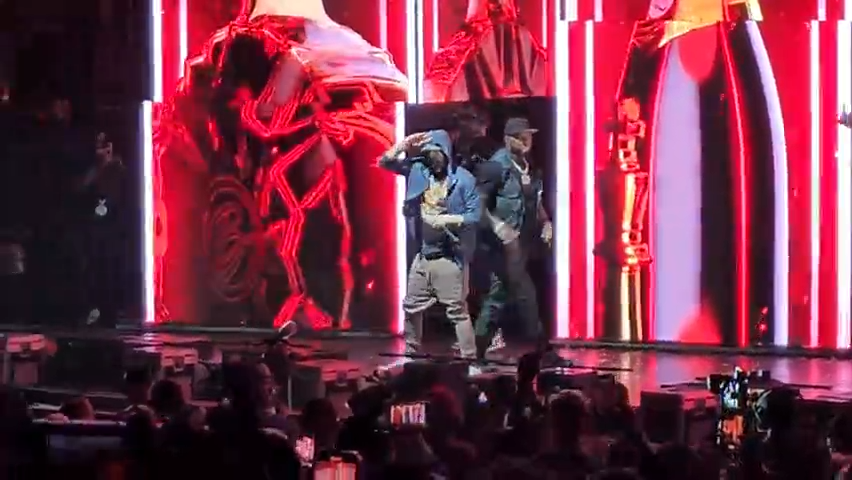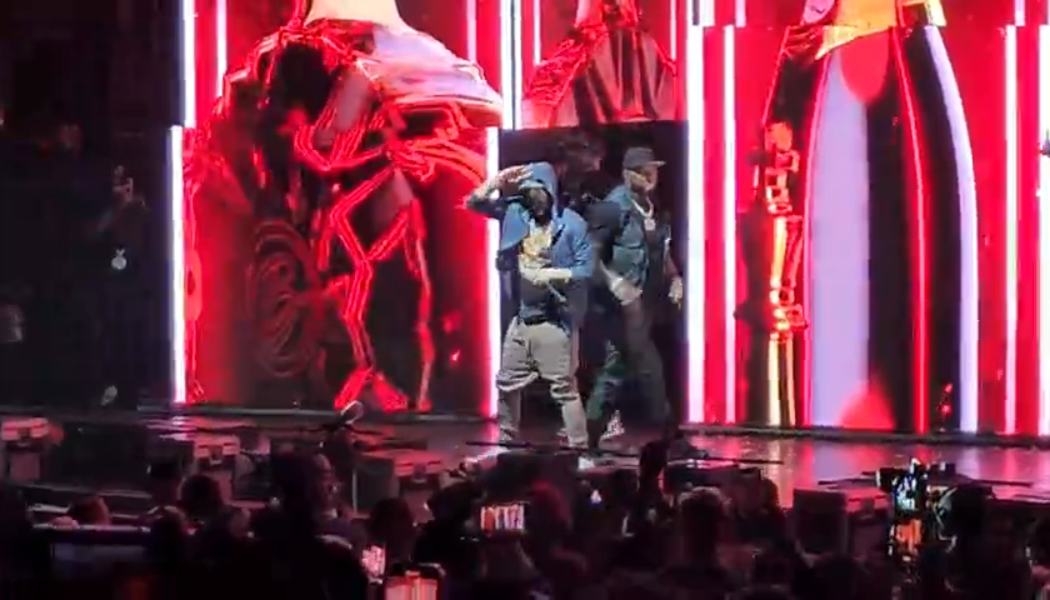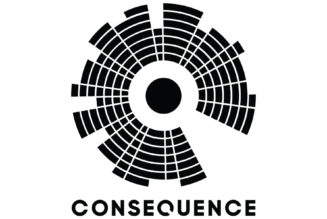
Eminem joins 50 Cent onstage at Pine Knob as farewell tour hits Detroit
Eminem joins 50 Cent onstage at Pine Knob Music Theatre Sept. 17, 2023, in Clarkston, Mich.
Brian McCollum, Detroit Free Press
Imagine Detroit with no music.
No Motown. No gospel. No Jazz. No rock. No rap. No techno. No blues.
Can’t do it, can you? That’s because Detroit and its incredible musical heritage are one and the same. Detroit without music would be nothing more than a spot on the map where people walk around in circles in search of the beat, trying to keep time. A very sad sight indeed.
There is no place on Earth that doesn’t groove to the sound of Us.
Just for starters, Detroit introduced the world to Techno and Motown. Two of the most influential musical genres in the entire world were born right here. And then there’s the list of musical royalty, ranging from rock legends Alice Cooper and the MC5 to jazz giants James Carter and Ron Carter (no relation), rap kings Eminem and Big Sean, hip-hop composers like J Dilla, the genius of Stevie Wonder, the Queen of Soul Aretha Franklin, the powerful gospel offerings of the Wynans, The Clark Sisters and Fred Hammond, to the late great blues great John Lee Hooker.
And those are just a bare handful.
Last month, Detroit bragged about its musical heritage on stage in front of a rapturous and appreciative audience during the two-hour celebration of the reopening of Michigan Central Station. Produced by Detroit’s own hometown rap giant Eminem, the show featured another local rap giant in Big Sean, hometown rock favorite Jack White and — it’s still hard to believe — Motown legend Diana Ross.
The event highlighted the breadth and depth of Detroit’s musical influence – but only some of it.
To try and feature that depth of talent in full would have taken more like a two-day show, not just two hours. Still, those who may not have known were educated − and those who knew were reminded – that Detroit is the musical capital of the world. Period. No other city on Earth can match our musical resume, and it’s not even close.
But we don’t act like it.
More: Michigan Central concert among most memorable evenings of homegrown music in years
I would argue that Detroit’s musical community hasn’t really been taken seriously at the local level – or at least not as seriously as it should be – since the days of Motown. Or actually, longer ago than that, turning back the clock to the days of Paradise Valley, when Detroit had its own musical district that provided steady gigs for some of the world’s best musicians seven days a week virtually round the clock.
Today, the music is still here, but the venues available to perform that music to an appreciative audience have shrunk dramatically by comparison. There is no music district comparable to Paradise Valley, where music lovers can stroll in and out of clubs checking out the scene like they do today in Memphis on Beale Street, or up and down Bourbon Street in New Orleans.
We almost had it for one brief shining moment over in Rivertown, back in the days when the Soup Kitchen was a key destination for blues, the Rhino was a great destination for jazz, Woodbridge Tavern had rock going on and a club right down the street from the Soup Kitchen was regularly bouncing with hip-hop.
I knew the scene pretty well because I was part of a blues band that hosted regular blues jam sessions every Tuesday night at the Soup for quite a while back in the mid-‘90s. Nobody would confuse the area with Beale Street in Memphis, but it was a decent central location featuring a variety of music that I always felt had the potential to become something bigger. But then came the talk of the casinos being built in that area (which never happened), and the scene faded to make way for yet another development that was supposed to help turn around Detroit’s then-miserable fortunes.
Today, if you want to check out the local music scene in Detroit, you need to know where to go and who to ask. But no matter who you ask, the fact remains that finding live music performed by local musicians in Detroit is a harder task than it should be for tourists, which means it is harder for Detroit musicians to nail down gigs that pay anything approaching what their skills are worth.
Despite all of Detroit’s notable accomplishments in recent years, it still seems like we’re so accustomed to being surrounded by all this musical talent (because it’s been here for so long) that Detroiters take it for granted, assuming that it will always be here and therefore not in need of any special attention or consideration.
This is a mistake.
Today, it’s hard to even count the number of top-flight musicians who have been forced to leave the city over the years and make a name for themselves – not to mention enough money to live on – but let’s just agree that it’s a lot. If just a fraction of those who have left for greener pastures were still actively employed here in the city sharing their talents and having those talents utilized as teachers, performers, producers and composers, this could have an equally tremendous impact on the city’s future as all these new developments.
It would be a cultural impact honoring and celebrating Detroit’s place in history as one of the most culturally and artistically relevant cities in the world. Bigger, taller, shinier buildings all by themselves are not what will bring Detroit back. We need that sound.
I think this might be a good time to again consider the possibility of a musical district — perhaps back at Rivertown, perhaps elsewhere — that promotes, features and hires local talent, offering gigs and other opportunities that pay a decent wage.
Right now, the only locally based musicians who are getting paid a living wage and have any form of security are those who belong to the Detroit Symphony Orchestra — not that they don’t deserve it, because the Detroit Symphony Orchestra is without a doubt a local treasure.
More: From tux to Tigers jersey: DSO’s maestro enthralled with Detroit as he finally settles in
But they aren’t the only musical treasures in this city, and I’m willing to bet they would not argue with that assessment.
The entertainment industry has never been a stable sort of enterprise, but it doesn’t have to be like this, not here in Detroit, where we do music better than anybody else.
There is a reason Detroit music was featured at the train station opening. In a way, it doubled as a coming-out party celebrating a revived Detroit. You simply cannot celebrate the greatness of Detroit without the greatness of Detroit music.
Detroit’s musicians and artists are truly the best of Detroit. It’s time we recognized this wealth of talent in a way that better acknowledges – and benefits – those responsible.
Keith A. Owens is a local writer and co-founder of Detroit Stories Quarterly and the We Are Speaking Substack newsletter and podcast.
Submit a letter to the editor at freep.com/letters and we may publish it online and in print.








